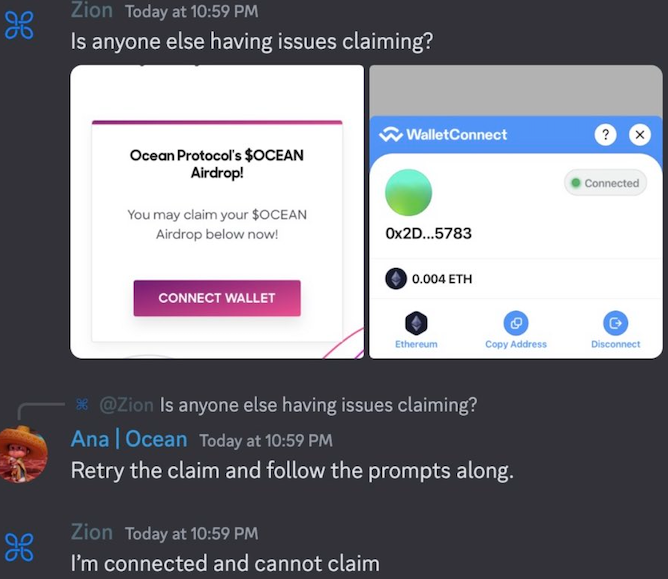Virtual private networking (VPN) companies market their services as a way to prevent anyone from snooping on your Internet usage. But new research suggests this is a dangerous assumption when connecting to a VPN via an untrusted network, because attackers on the same network could force a target’s traffic off of the protection provided by their VPN without triggering any alerts to the user.

Image: Shutterstock.
When a device initially tries to connect to a network, it broadcasts a message to the entire local network stating that it is requesting an Internet address. Normally, the only system on the network that notices this request and replies is the router responsible for managing the network to which the user is trying to connect.
The machine on a network responsible for fielding these requests is called a Dynamic Host Configuration Protocol (DHCP) server, which will issue time-based leases for IP addresses. The DHCP server also takes care of setting a specific local address — known as an Internet gateway — that all connecting systems will use as a primary route to the Web.
VPNs work by creating a virtual network interface that serves as an encrypted tunnel for communications. But researchers at Leviathan Security say they’ve discovered it’s possible to abuse an obscure feature built into the DHCP standard so that other users on the local network are forced to connect to a rogue DHCP server.
“Our technique is to run a DHCP server on the same network as a targeted VPN user and to also set our DHCP configuration to use itself as a gateway,” Leviathan researchers Lizzie Moratti and Dani Cronce wrote. “When the traffic hits our gateway, we use traffic forwarding rules on the DHCP server to pass traffic through to a legitimate gateway while we snoop on it.”
The feature being abused here is known as DHCP option 121, and it allows a DHCP server to set a route on the VPN user’s system that is more specific than those used by most VPNs. Abusing this option, Leviathan found, effectively gives an attacker on the local network the ability to set up routing rules that have a higher priority than the routes for the virtual network interface that the target’s VPN creates.
“Pushing a route also means that the network traffic will be sent over the same interface as the DHCP server instead of the virtual network interface,” the Leviathan researchers said. “This is intended functionality that isn’t clearly stated in the RFC [standard]. Therefore, for the routes we push, it is never encrypted by the VPN’s virtual interface but instead transmitted by the network interface that is talking to the DHCP server. As an attacker, we can select which IP addresses go over the tunnel and which addresses go over the network interface talking to our DHCP server.”
Leviathan found they could force VPNs on the local network that already had a connection to arbitrarily request a new one. In this well-documented tactic, known as a DHCP starvation attack, an attacker floods the DHCP server with requests that consume all available IP addresses that can be allocated. Once the network’s legitimate DHCP server is completely tied up, the attacker can then have their rogue DHCP server respond to all pending requests.
“This technique can also be used against an already established VPN connection once the VPN user’s host needs to renew a lease from our DHCP server,” the researchers wrote. “We can artificially create that scenario by setting a short lease time in the DHCP lease, so the user updates their routing table more frequently. In addition, the VPN control channel is still intact because it already uses the physical interface for its communication. In our testing, the VPN always continued to report as connected, and the kill switch was never engaged to drop our VPN connection.”
The researchers say their methods could be used by an attacker who compromises a DHCP server or wireless access point, or by a rogue network administrator who owns the infrastructure themselves and maliciously configures it. Alternatively, an attacker could set up an “evil twin” wireless hotspot that mimics the signal broadcast by a legitimate provider.
Bill Woodcock is executive director at Packet Clearing House, a nonprofit based in San Francisco. Woodcock said Option 121 has been included in the DHCP standard since 2002, which means the attack described by Leviathan has technically been possible for the last 22 years.
“They’re realizing now that this can be used to circumvent a VPN in a way that’s really problematic, and they’re right,” Woodcock said.
Woodcock said anyone who might be a target of spear phishing attacks should be very concerned about using VPNs on an untrusted network.
“Anyone who is in a position of authority or maybe even someone who is just a high net worth individual, those are all very reasonable targets of this attack,” he said. “If I were trying to do an attack against someone at a relatively high security company and I knew where they typically get their coffee or sandwich at twice a week, this is a very effective tool in that toolbox. I’d be a little surprised if it wasn’t already being exploited in that way, because again this isn’t rocket science. It’s just thinking a little outside the box.”
Successfully executing this attack on a network likely would not allow an attacker to see all of a target’s traffic or browsing activity. That’s because for the vast majority of the websites visited by the target, the content is encrypted (the site’s address begins with https://). However, an attacker would still be able to see the metadata — such as the source and destination addresses — of any traffic flowing by.
KrebsOnSecurity shared Leviathan’s research with John Kristoff, founder of dataplane.org and a PhD candidate in computer science at the University of Illinois Chicago. Kristoff said practically all user-edge network gear, including WiFi deployments, support some form of rogue DHCP server detection and mitigation, but that it’s unclear how widely deployed those protections are in real-world environments.
“However, and I think this is a key point to emphasize, an untrusted network is an untrusted network, which is why you’re usually employing the VPN in the first place,” Kristoff said. “If [the] local network is inherently hostile and has no qualms about operating a rogue DHCP server, then this is a sneaky technique that could be used to de-cloak some traffic – and if done carefully, I’m sure a user might never notice.”
According to Leviathan, there are several ways to minimize the threat from rogue DHCP servers on an unsecured network. One is using a device powered by the Android operating system, which apparently ignores DHCP option 121.
Relying on a temporary wireless hotspot controlled by a cellular device you own also effectively blocks this attack.
“They create a password-locked LAN with automatic network address translation,” the researchers wrote of cellular hot-spots. “Because this network is completely controlled by the cellular device and requires a password, an attacker should not have local network access.”
Leviathan’s Moratti said another mitigation is to run your VPN from inside of a virtual machine (VM) — like Parallels, VMware or VirtualBox. VPNs run inside of a VM are not vulnerable to this attack, Moratti said, provided they are not run in “bridged mode,” which causes the VM to replicate another node on the network.
In addition, a technology called “deep packet inspection” can be used to deny all in- and outbound traffic from the physical interface except for the DHCP and the VPN server. However, Leviathan says this approach opens up a potential “side channel” attack that could be used to determine the destination of traffic.
“This could be theoretically done by performing traffic analysis on the volume a target user sends when the attacker’s routes are installed compared to the baseline,” they wrote. “In addition, this selective denial-of-service is unique as it could be used to censor specific resources that an attacker doesn’t want a target user to connect to even while they are using the VPN.”
Moratti said Leviathan’s research shows that many VPN providers are currently making promises to their customers that their technology can’t keep.
“VPNs weren’t designed to keep you more secure on your local network, but to keep your traffic more secure on the Internet,” Moratti said. “When you start making assurances that your product protects people from seeing your traffic, there’s an assurance or promise that can’t be met.”
A copy of Leviathan’s research, along with code intended to allow others to duplicate their findings in a lab environment, is available here.
A number of Discord communities focused on cryptocurrency have been hacked this past month after their administrators were tricked into running malicious Javascript code disguised as a Web browser bookmark.

This attack involves malicious Javascript that is added to one’s browser by dragging a component from a web page to one’s browser bookmarks.
According to interviews with victims, several of the attacks began with an interview request from someone posing as a reporter for a crypto-focused news outlet online. Those who take the bait are sent a link to a Discord server that appears to be the official Discord of the crypto news site, where they are asked to complete a verification step to validate their identity.
As shown in this Youtube video, the verification process involves dragging a button from the phony crypto news Discord server to the bookmarks bar in one’s Web browser. From there, the visitor is instructed to go back to discord.com and then click the new bookmark to complete the verification process.
However, the bookmark is actually a clever snippet of Javascript that quietly grabs the user’s Discord token and sends it to the scammer’s website. The attacker then loads the stolen token into their own browser session and (usually late at night after the admins are asleep) posts an announcement in the targeted Discord about an exclusive “airdrop,” “NFT mint event” or some other potential money making opportunity for the Discord members.
The unsuspecting Discord members click the link provided by the compromised administrator account, and are asked to connect their crypto wallet to the scammer’s site, where it asks for unlimited spend approvals on their tokens, and subsequently drains the balance of any valuable accounts.
Meanwhile, anyone in the compromised Discord channel who notices the scam and replies is banned, and their messages are deleted by the compromised admin account.
Nicholas Scavuzzo is an associate at Ocean Protocol, which describes itself as an “open-source protocol that aims to allow businesses and individuals to exchange and monetize data and data-based services.” On May 22, an administrator for Ocean Protocol’s Discord server clicked a link in a direct message from a community member that prompted them to prove their identity by dragging a link to their bookmarks.
Scavuzzo, who is based in Maine, said the attackers waited until around midnight in his timezone time before using the administrator’s account to send out an unauthorized message about a new Ocean airdrop.
Scavuzzo said the administrator’s account was hijacked even though she had multi-factor authentication turned on.
“A CAPTCHA bot that allows Discord cookies to be accessed by the person hosting the CAPTCHA,” was how Scavuzzo described the attack. “I’ve seen all kinds of crypto scams, but I’ve never seen one like this.”

In this conversation, “Ana | Ocean” is a compromised Discord server administrator account promoting a phony airdrop.
Importantly, the stolen token only works for the attackers as long as its rightful owner doesn’t log out and back in, or else change their credentials.
Assuming the administrator can log in, that is. In Ocean’s case, one of the first things the intruders did once they swiped the administrator’s token was change the server’s access controls and remove all core Ocean team members from the server.
Fortunately for Ocean, Scavuzzo was able to reach the operator of the server that hosts the Discord channel, and have the channel’s settings reverted back to normal.
“Thankfully, we are a globally distributed team, so we have people awake at all hours,” Scavuzzo said, noting that Ocean is not aware of any Discord community members who fell for the phony airdrop offer, which was live for about 30 minutes. “This could have been a lot worse.”
On May 26, Aura Network reported on Twitter that its Discord server was compromised in a phishing attack that resulted in the deletion of Discord channels and the dissemination of fake Aura Network Airdrop Campaign links.
On May 27, Nahmii — a cryptocurrency technology based on the Ethereum blockchain — warned on Twitter that one of its community moderators on Discord was compromised and posting fake airdrop details.

On May 9, MetrixCoin reported that its Discord server was hacked, with fake airdrop details pushed to all users.
KrebsOnSecurity recently heard from a trusted source in the cybersecurity industry who dealt firsthand with one of these attacks and asked to remain anonymous.
“I do pro bono Discord security work for a few Discords, and I was approached by one of these fake journalists,” the source said. “I played along and got the link to their Discord, where they were pretending to be journalists from the Cryptonews website using several accounts.”
The source took note of all the Discord IDs of the admins of the fake Cryptonews Discord, so that he could ensure they were blocked from the Discords he helps to secure.
“Since I’ve been doing this for a while now, I’ve built up a substantial database of Discord users and messages, so often I can see these scammers’ history on Discord,” the source said.
In this case, he noticed a user with the “CEO” role in the fake Cryptonews Discord had been seen previously under another username — “Levatax.” Searching on that Discord ID and username revealed a young Turkish coder named Berk Yilmaz whose Github page linked to the very same Discord ID as the scammer CEO.
Reached via instant message on Telegram, Levatax said he’s had no involvement in such schemes, and that he hasn’t been on Discord since his Microsoft Outlook account was hacked months ago.
“The interesting thing [is] that I didn’t use Discord since few months or even social media because of the political status of Turkey,” Levatax explained, referring to the recent election in his country. “The only thing I confirm is losing my Outlook account which connected to my Discord, and I’m already in touch with Microsoft to recover it.”
The verification method used in the above scam involves a type of bookmark called a “bookmarklet” that stores Javascript code as a clickable link in the bookmarks bar at the top of one’s browser.
While bookmarklets can be useful and harmless, malicious Javascript that is executed in the browser by the user is especially dangerous. So please avoid adding (or dragging) any bookmarks or bookmarklets to your browser unless it was your idea in the first place.